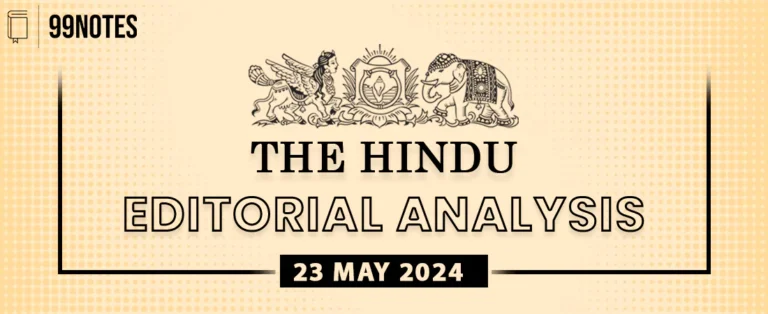30 July 2024 : Daily Answer Writing
Q1) Though importance of executive agencies in checking corruption and impropriety cannot be overstated, their misuse for political ends is anathema to the rule of law. Comment, with special reference to Enforcement Directorate (ED).
(250 Words/15 Marks)
ANS
Enforcement directorate (ED) is law enforcement and economic intelligence agency of the Government of India. It is responsible for enforcing economic laws and fighting economic crime in India. Corruption
Perception Index, 2022 ranks India 85 out of 180 countries suggesting the need for reforms in executive agencies like ED, CBI, SFIO, NIA etc.
The functioning of executive agencies like ED is criticized for the following reasons:
1. Lack of autonomy: There are allegations that government is weaponising the Executive agencies to trifle dissent.
E.g., as per newspaper reports, 85% of the cases registered by ED are against opposition politicians.
2. Ineffective Investigations due to reasons including alleged political influence lead to low conviction rate.
E.g., Only 25 convictions in over 5000+ chargesheets.
3. Tenure of ED: Despite a fixed tenure for ED Chief for two years, political patronization turns fixed tenure into a spoils system with multiple extensions.
E.g., SC has termed extensions to ED Chief as illegal.
4. Allegations of harassment: Lengthy and inconclusive investigations lead to harassment of businessmen and affects ease of doing business.
5. Federal tensions: The political use of executive agencies to harass opposition parties has created federal issues.
E.g., several states withdrew General Consent to CBI citing arbitrary actions.
6. Insufficient focus on prevention: Critics argue that the ED’s approach is more reactive than proactive. There is overemphasis on attachment of assets instead of preventing economic offences, such as serious economic offenders escaping the country.
Despite these criticisms, executive agencies have played a key role in prosecuting serious offenders through recovery of assets, acting as point agency for FATF reforms, implementation of PMLA etc.
In this light, following measures should be taken to enhance the positive role pf executive agencies in combating corruption:
1. Legal mandate rather than executive whim should guide the functioning of agencies.
E.g., SC in Vijay Madanlal Choudhary case held that ED authorities are not police officers and an inquiry by them is not investigation.
2. Strengthening accountability: ED should be made accountable to the parliament through mechanisms such as Joint Parliamentary Committee (JPC). It can ensure more transparency in its proceedings and accountability for lack of convictions.
3. Appointment of Director by committee can reduce political control.
E.g., Committee for appointment of CBI Director as directed by SC. Tenure extensions should be given only in exceptional cases.
4. Technical expertise: ED needs superior technological capability to thwart economic offences related to emerging technologies and evolving means of digital transactions.
E.g., FATF highlights cryptocurrency’s use for money laundering.
5. International Cooperation between agencies must be enhanced through deputation, training, seminars etc.
6. Former Chief Justice N.V. Ramana has proposed for an independent super-investigative agency replacing multiple Central institutions viz CBI, ED, SFIO and NIA as a streamlined and coordinated check against corruption.
With the rising instances of serious economic offences, it is imperative that executive agencies remain autonomous as well as efficient. Issues of executive control must not be allowed to undermine the legal mandate of executive agencies. It is imperative for the executive agencies to function as effective checks on corruption within constitutional bounds.




